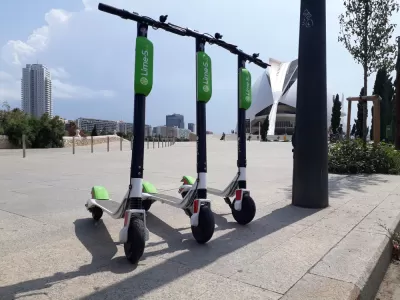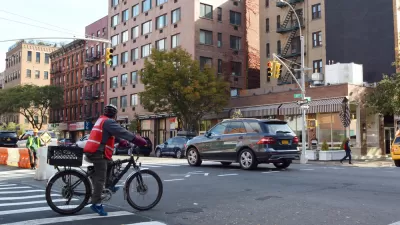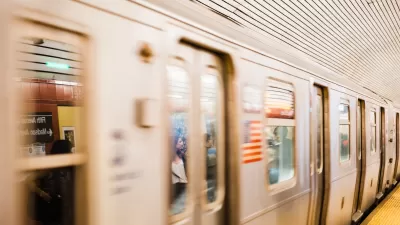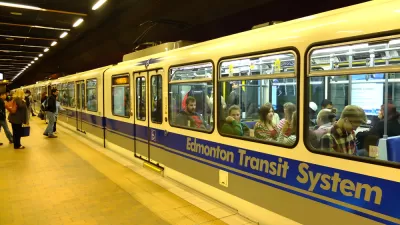Decreased public transit ridership is bringing some transit agencies to consider partnerships with micromobility corporations.

The micromobility industry took a hard hit in 2020 when the onset of the coronavirus pandemic influenced people's attitudes towards shared forms of transportation. Now, only months later, aversions and patterns of behavior are beginning to shift back in the favor of scooters and electric bikes. Patrick Sisson reports that micormobility could come back even stronger than before. "A notably different transit landscape may make the appeal of micromobility more durable. The need for additional space and new transit options in a socially distanced world has galvanized city leaders to rapidly designate car-free streets and create additional bike lanes," writes Sisson, referring to the nearly 1,600 miles of new bike lanes added during the COVID-19 lockdown around the globe.
When a recent IBM survey found that 20% of transit riders would not return to public transit, increasing attention turned to public-private partnerships between transit agencies and micromobility corporations. Sisson offers the example of Dayton, Ohio, where the city's transit agency runs operations for scooter rental company Spin. Partnerships like these could occur much more regularly as average trip lengths on scooters and electric bikes increase beyond last-mile mobility and ridership of public transit decreases.
FULL STORY: Battered by Coronavirus, Micromobility May Have Route to Revival

Planetizen Federal Action Tracker
A weekly monitor of how Trump’s orders and actions are impacting planners and planning in America.

Maui's Vacation Rental Debate Turns Ugly
Verbal attacks, misinformation campaigns and fistfights plague a high-stakes debate to convert thousands of vacation rentals into long-term housing.

Restaurant Patios Were a Pandemic Win — Why Were They so Hard to Keep?
Social distancing requirements and changes in travel patterns prompted cities to pilot new uses for street and sidewalk space. Then it got complicated.

In California Battle of Housing vs. Environment, Housing Just Won
A new state law significantly limits the power of CEQA, an environmental review law that served as a powerful tool for blocking new development.

Boulder Eliminates Parking Minimums Citywide
Officials estimate the cost of building a single underground parking space at up to $100,000.

Orange County, Florida Adopts Largest US “Sprawl Repair” Code
The ‘Orange Code’ seeks to rectify decades of sprawl-inducing, car-oriented development.
Urban Design for Planners 1: Software Tools
This six-course series explores essential urban design concepts using open source software and equips planners with the tools they need to participate fully in the urban design process.
Planning for Universal Design
Learn the tools for implementing Universal Design in planning regulations.
Heyer Gruel & Associates PA
JM Goldson LLC
Custer County Colorado
City of Camden Redevelopment Agency
City of Astoria
Transportation Research & Education Center (TREC) at Portland State University
Jefferson Parish Government
Camden Redevelopment Agency
City of Claremont





























